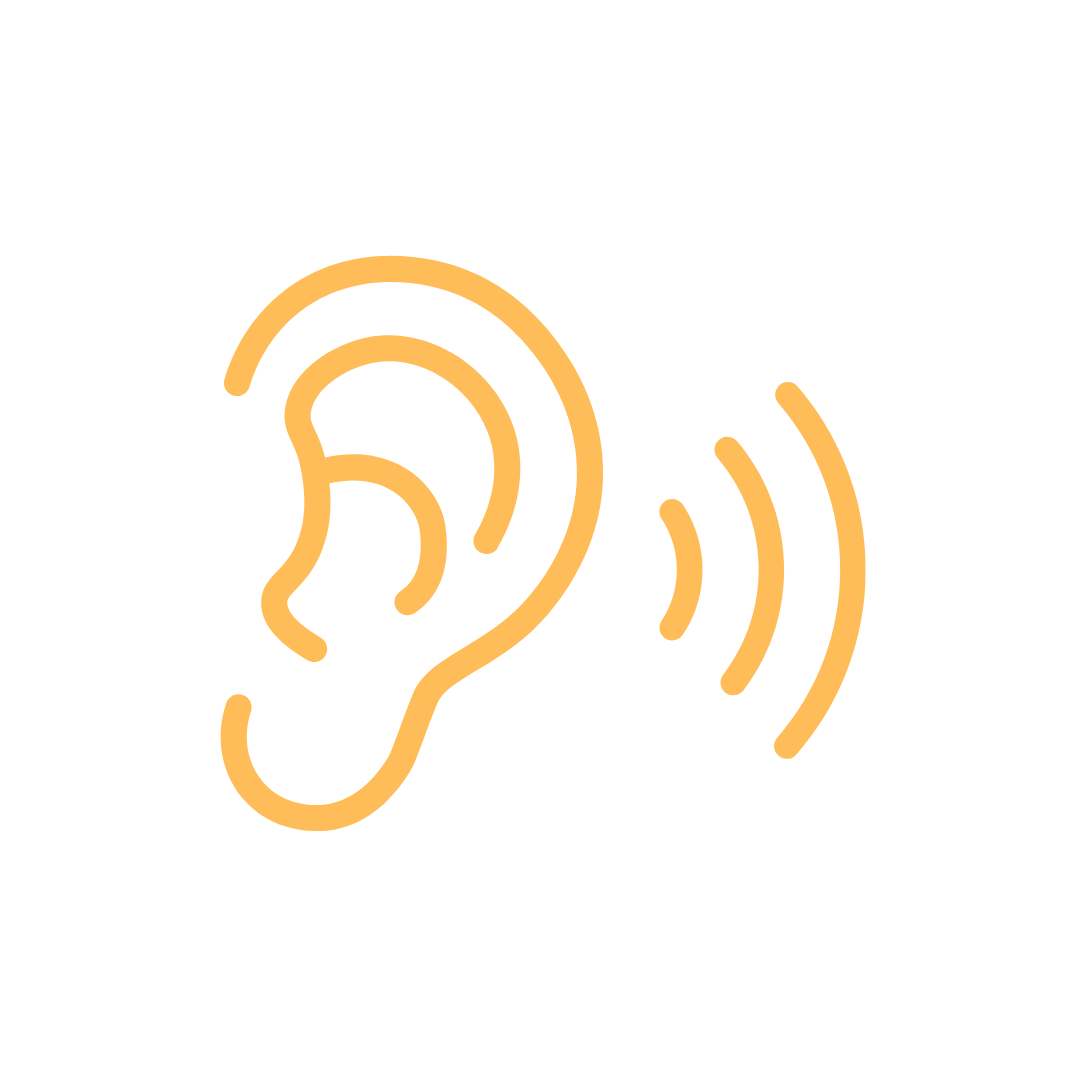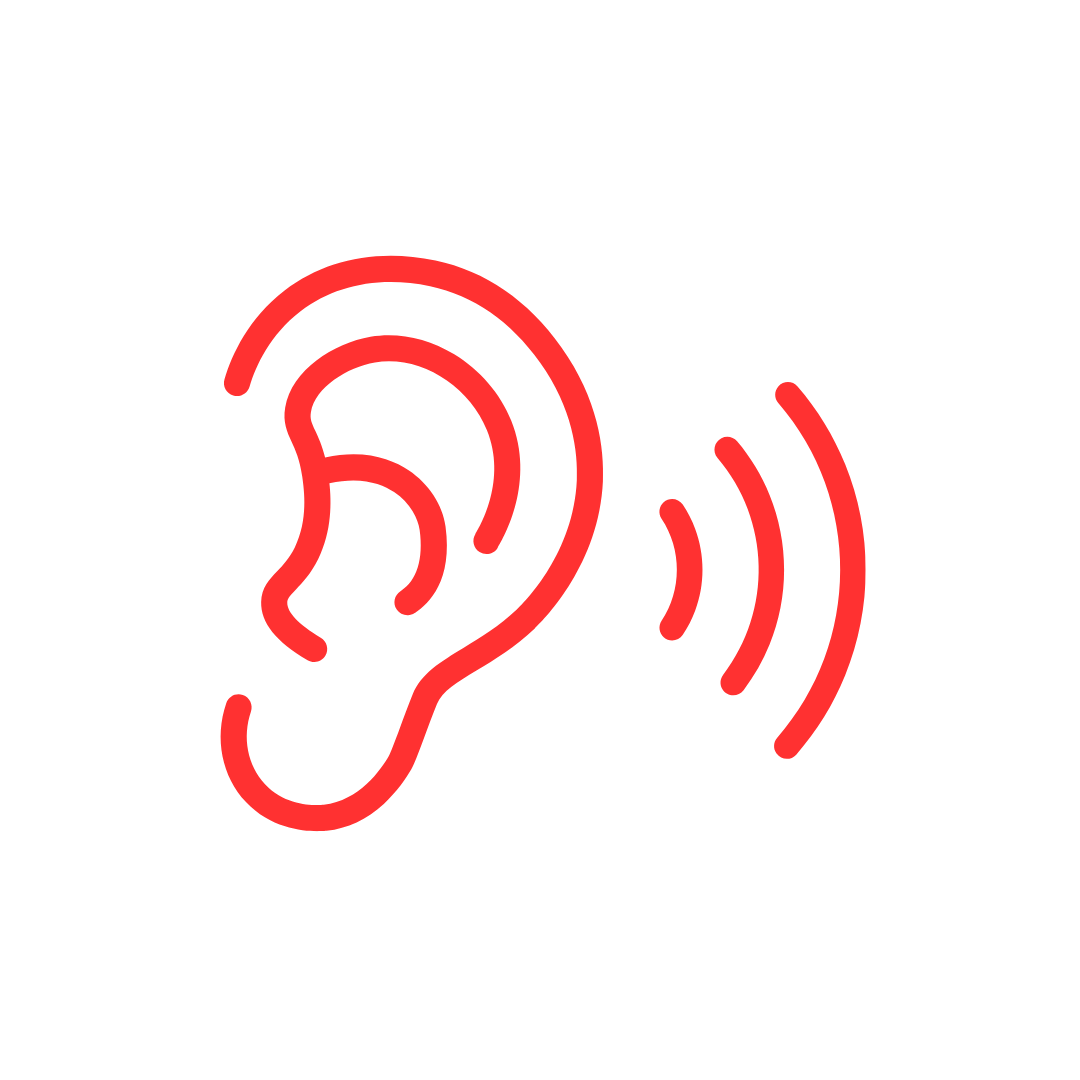Hearing Loss
Quick. Easy. No obligation.
Why Hearing Health Matters
Your ears are your second-most important sense—just behind your eyes. When your hearing begins to fade, it can affect everything from conversations with loved ones to your overall health and safety.
Hearing loss is often age-related, but it can also result from genetics, illness, or repeated exposure to loud noise. It usually comes on gradually, so it’s easy to miss—until it starts interfering with your daily life.
The good news:
Most hearing loss can be treated with hearing aids and professional care.
Degrees of Hearing Loss
Hearing loss is measured in decibels (dB)—the louder a sound needs to be before you hear it, the more severe the loss.

Normal hearing
- No noticeable hearing issues
- Soft and loud sounds are heard clearly

Mild hearing loss
- Conversations in noisy spaces are difficult
- May miss soft speech or background details

Moderate hearing loss
- Conversations without a hearing aid are challenging
- Many everyday sounds go unheard

Severe hearing loss
- Group conversations require significant effort
- Lip-reading becomes a key tool

Profound hearing loss
- Little to no hearing without amplification
- Communication depends on hearing aids and/or sign language
Hearing Loss: What You Should Know
1. It’s More Common Than You Think
1 in 3 people over the age of 65 has some degree of hearing loss.
2. Most Doctors Don’t Test for It
Hearing screening isn’t part of most annual physicals.
3. It’s Linked to Cognitive Decline
Studies show a connection to faster memory loss and higher risk of dementia.
4. It Increases Risk of Falls
Even mild hearing loss can triple the risk of accidental falls.
5. Smoking Raises the Risk
Smokers are 70% more likely to experience hearing loss.
6. Noise Is the #1 Cause
Loud environments and machinery are leading culprits—protect your ears!
Don’t Wait to Hear Better
If you’re noticing changes in your hearing—or if loved ones have mentioned it—now’s the time to take action. With today’s technology, there’s no reason to miss out on the conversations and connections that make life meaningful.
No pressure. No cost. Just answers.
Prefer to speak to someone?
Give us a call at one of our four convenient locations in Abbotsford, Chilliwack, Maple Ridge, or White Rock. We’re happy to help!
ABBOTSFORD: (604) 776-3937
CHILLIWACK: (604) 795-5367
WHITE ROCK: (604) 541-3937
MAPLE RIDGE: (604) 466-3937
*Free for adults over the age of 19. Some restrictions may apply.



















